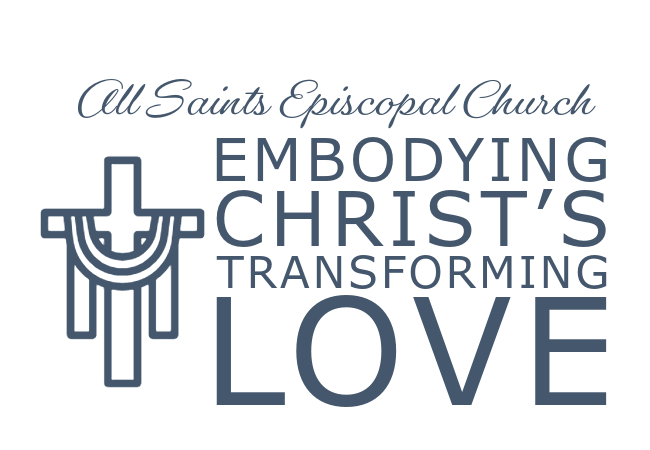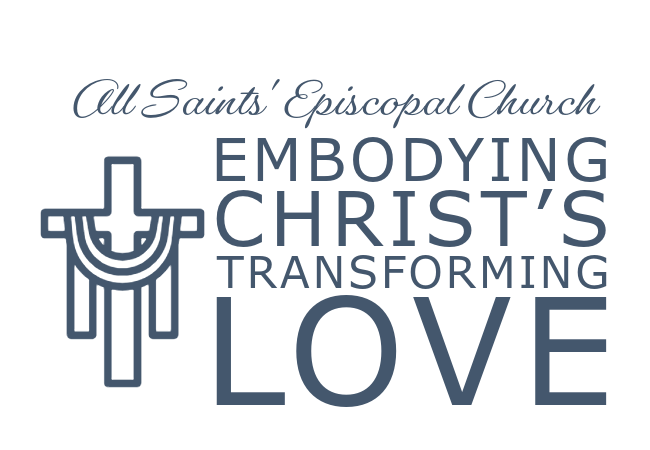
All of who you are is welcome here. This is not a perfect church, but it might just be the perfect church for imperfect people.
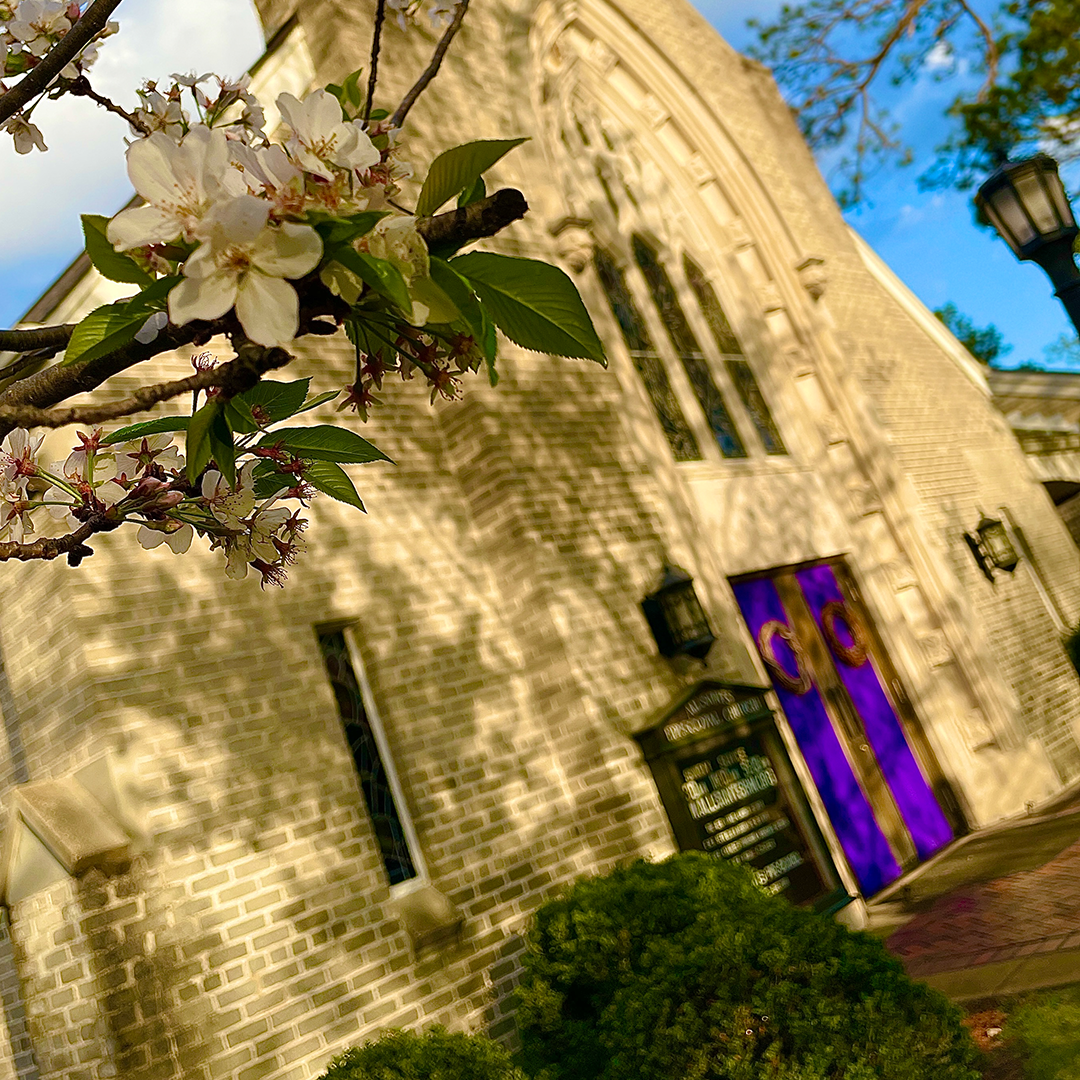
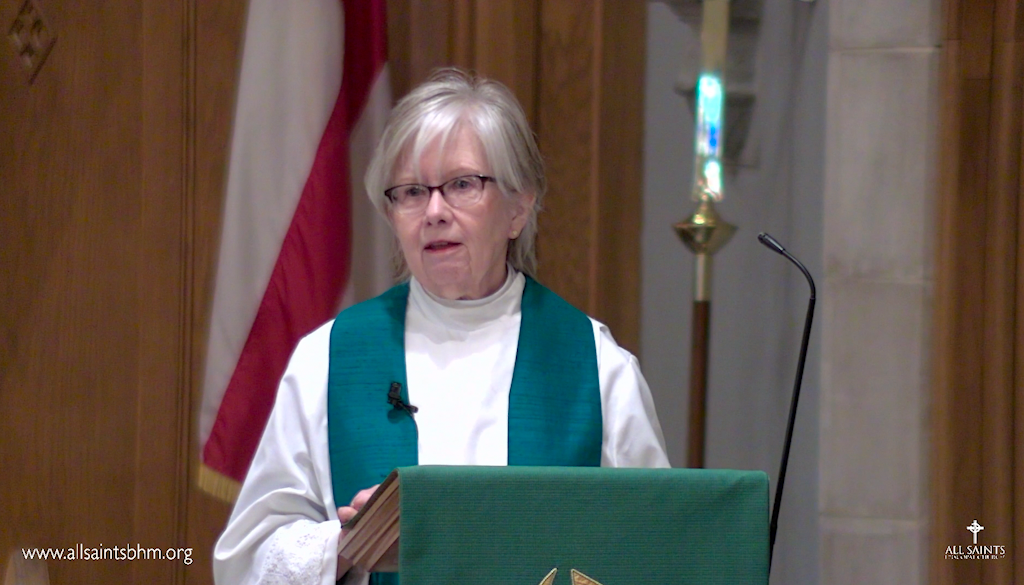
By The Rev. Cindy Carter
•
February 20, 2025
"Blessed" Sermon by The Rev. Cindy Carter February 16, 2025 I don’t know about you, but as a priest with many seminary classmates and other preachers on my social media I tend to see a lot of religious memes. I have to admit that I do enjoy these, and there are some that make me smile or even chuckle every time they come up (and as you know most memes do tend to come up over and over again on social media). One of my favorites of these religious memes came to mind more than once as I was working on this sermon. I’m guessing many of you have probably seen it. It shows Jesus, sitting in his best first century rabbi pose, teaching his followers and saying, “Now listen up, I don’t want four different versions of this going around.” (As a preaching nerd, I find that meme hilarious. It makes me laugh every time I see it.) Of course, it came to mind because our Gospel reading for today, is a portion of what is usually called the “Sermon on the Plain,” and it resembles the familiar Beatitudes which we read in Matthew’s more famous “Sermon on the Mount.” But, there are differences. Both Luke and Matthew seem to have exercised considerable freedom in compiling their collections of Jesus’ teachings to meet their own literary and theological purposes. Neither can be shown to be a verbatim record of an actual preaching or teaching event in Jesus’ ministry. You see each of the Gospels presents the story of Jesus in a different way, and much of their richness is lost if we try to make them fit together in one consistent account. The Gospels all proclaim the Good News of God’s salvation in and through Jesus of Nazareth. But, they are concerned less with the biographical details of Jesus’ life than they are with what that life means for us and for the world. For example, the Jesus of Matthew’s Gospel (where we find the Sermon on the Mount) is a new Moses who fulfills the scripture and establishes the authority of his words. Perhaps that is why Matthew placed Jesus on a Mountain when he delivered his Sermon on the Mount – an allusion to Moses receiving God’s word on a mountain, something those who heard Matthew’s Gospel would have easily recognized. The Jesus of Luke’s Gospel is compassionate, a friend to outcasts. Jesus is the savior who came to seek and save the lost. Just before Jesus delivered the Sermon on the Plain, he prayed on a mountain before calling his inner circle, his apostles. And, then he came “down… and stood in a level place” to be near all those who had come to hear him and to be healed. (Pause) As we read the series of blessings and woes in today’s reading we hear echoes of other readings we have heard recently from Luke’s Gospel. We hear echoes of Mary’s Song, the Magnificat, from Luke, Chapter 1, that we heard in the season of Advent. He has shown the strength of his arm, he has scattered the proud in their conceit. He has cast down the mighty from their thrones, and has lifted up the lowly. He has filled the hungry with good things, and the rich he has sent away empty. And, we hear echoes of the scripture from the prophet Isaiah on which Jesus based his sermon in Nazareth, a reading we heard a few weeks ago from Luke, Chapter 4. "The Spirit of the Lord is upon me, because he has anointed me to bring good news to the poor. He has sent me to proclaim release to the captives and recovery of sight to the blind, to let the oppressed go free, to proclaim the year of the Lord's favor." Blessed are you who are poor…who are hungry now…who weep now. Woe to you who are rich…who are full now…who are laughing now. It’s a sermon about who’s in and who’s out in God’s kingdom. And, frankly, it’s a little bit, maybe more than a little bit, unsettling. A few words about this unsettling picture. First, the blessing of the poor, the hungry, and consequently those who weep is not intended to idealize or glorify poverty. Rather, this blessing declares, what a commentator has called, God’s “prejudicial commitment to the poor.” One theologian has written - “God has a preferential love for the poor not because they are necessarily better than others, morally or religiously, but simply because they are poor and living in an inhuman situation that is contrary to God’s will. The ultimate basis for the privileged position of the poor is not the poor themselves but in God, in the gratuitous and universality of God’s…love.” Jesus was the human expression of how God loves; and in Luke’s Gospel, Jesus is a compassionate friend to outcasts. And, that kind of love is scandalous, shocking, outrageous. Especially to those of us who are not poor or hungry. Rachel Held Evans, in her book Searching for Sunday , wrote “what makes the gospel offensive isn't who it keeps out but who it lets in.” The poor, the hungry, the weeping, the oppressed. Now, what Jesus was preaching here is what we call “eschatological.” It’s about how everything will be when God makes it all right. The coming of the kingdom will turn everything upside down and inside out. Every one of the conventional expectations that this world holds will be shattered when God’s kingdom comes in its fulness. Here and now the rich, the full, the laughing are on top; the poor, the hungry, the weeping are on the bottom. Not so in God’s kingdom. Now, I don’t know about you, but if that’s where we could end things with Jesus’ sermon this morning, well, God’s prejudicial commitment to the poor might sound just fine to me. Because I could know that God’s going to take care of it. Everything is going to be fine. But, you see, in this “sermon on the plain,” Jesus told us what God is like, who God is, and what God is up to. It is the same God we have heard in the words of the Old Testament prophets and all through scripture. And, once we know that, I believe that we must realize there are implications for the behavior of those of us here and now who are loved by God and love God back. There are implications for the behavior of those of us who have heard Jesus say, as he did in that sermon in Nazareth, that he was the very fulfillment of that scripture from Isaiah that talked about bringing good news to the poor and letting the oppressed go free. There are implications for our lives here and now if we dare to take the name of Jesus, if we dare to receive God’s love, if we love God back. My friends, there are implications for those of us who pray they kingdom, thy will be done. There are implications. AMEN.

February 18, 2025
Children’s Formation invites you to take part in a special tradition for 3rd grade Solemn Communion. One of the most meaningful moments for the children is embroidering a cross on their own prayer shawl. We need six volunteers on Sunday, February 23 , from 2:45-4:15pm in Adult Sunday School Room 223 to assist children as they sew a cross onto their shawls. No advanced sewing skills are required—each shawl is pre-made, with the cross outlined in washable ink and set in an embroidery hoop. There is also an opportunity to help prepare prayer shawls for next year (date TBD). No sewing experience is needed, as tasks include tearing fabric, ironing, and folding. If you’d like to help with either opportunity, please contact Jeannie Feldman at jeanniefeldman@att.net . Your support makes this tradition possible!

February 18, 2025
Children’s Formation invites you to take part in a special tradition for 3rd grade Solemn Communion. One of the most meaningful moments for the children is embroidering a cross on their own prayer shawl. We need six volunteers on Sunday, February 23 , from 2:45-4:15pm in Adult Sunday School Room 223 to assist children as they sew a cross onto their shawls. No advanced sewing skills are required—each shawl is pre-made, with the cross outlined in washable ink and set in an embroidery hoop. There is also an opportunity to help prepare prayer shawls for next year (date TBD). No sewing experience is needed, as tasks include tearing fabric, ironing, and folding. If you’d like to help with either opportunity, please contact Jeannie Feldman at jeanniefeldman@att.net . Your support makes this tradition possible!
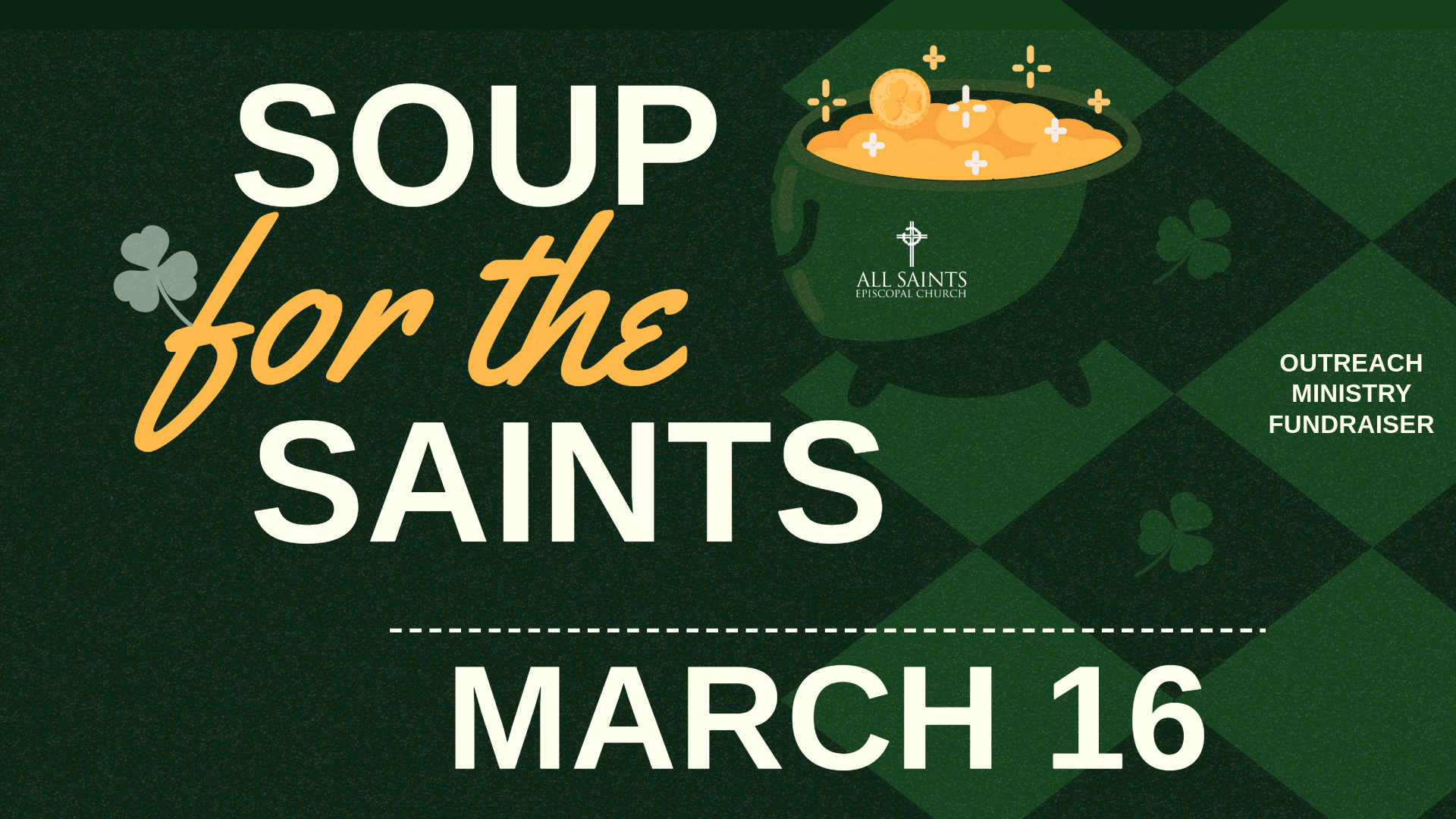
February 4, 2025
Join us on March 16 for "Soup for the Saints Lunch!" This is a special fundraiser supporting our Outreach Ministry. Enjoy a comforting bowl of potato soup, fresh salad, warm rolls, and a delicious dessert while listening to live music and watching the kids enjoy fun activities. Seating is limited, so be sure to get your tickets by March 12. Bring your friends, invite your neighbors, and share a meal that makes a difference. More details to come.

January 26, 2025
All Saints is excited to take part in a Habitat for Humanity Build! The kickoff event is set for March 13 at 8:00am, with build days scheduled for April 3, 4, and 5 from 8:00am to 3:00pm each day . We'll wrap up with a special dedication on May 3. We’re looking for 10–25 volunteers each day, and participants must be at least 14 years old. Stay tuned for more details on how to sign up!

January 23, 2025
Our youth program needs your help providing meals for Sunday school breakfast and then for dinner on Sunday evenings. You can cook or bring anything you think would be enjoyable to eat for our youth. Breakfast should serve approximately 10-20 people, Sunday school begins at 9:45am. Dinners should be provided for around 20-30 people. Check with Grace below for specific dinner times. SIGN UP to serve breakfast SIGN UP to serve dinner For more information, contact our Director of Youth Ministries, Grace Turner ( gturner@allsaintsbhm.org ).

January 7, 2025
In this message, Ian Cunningham reflects on the exciting opportunities ahead for the All Saints Choir School. He shares his personal connection to the Royal School of Church Music (RSCM) and highlights upcoming events and programs that will inspire and enrich choristers and their families. From Ian Cunningham I had hoped to share a few words at the Choir School Kickoff in August, but we decided that I could write a short message to the church and all those in the "Choir School Family." When I first heard that All Saints was finally becoming associated with the Royal School of Church Music (RSCM) and adopting the Voice for Life® curriculum, it was a dream come true. I spent my first few years at All Saints evangelizing about RSCM, since Voice for Life® was the first pillar of my music education. I later attended the nation's largest RSCM choir residency—an intensive choir camp for young singers—eleven times. The course was held at King's College in Wilkes-Barre, Pennsylvania. Started in the 1990s, it took place yearly until 2019. I attended this choir residency five times as a chorister and then another six as a staff member. It was an integral part of my young adulthood, and I made lasting friendships and connections with vocalists, organists, and conductors from around the country during my time there. The weeklong camp I attended at King's no longer exists, but some of the alumni formed a new one. In 2022, this new camp began: the RSCM Midwest America Summer Choral Residency at Indiana's University of Evansville. Its registration recently opened for July 21–27, 2025. I am joining the residential staff there this coming summer, and I hope, through this program, to finally introduce my children, Poppy and Soren, to some of the most notable musicians in the country. All of our All Saints Choir School choristers aged 10 and up will have that same incredible opportunity. There is also a weekend event in Nashville on March 22–23, 2025, roughly halfway between here and Indianapolis, which would work well as a stepping stone for curious choristers and their families. The 26th Annual Cathedral Chorister Festival at Christ Church Cathedral is a two-day event that will allow choristers to work with musicians from across the nation. On Saturday, choristers will rehearse in preparation for a Sunday morning service and evensong the following day. We already have choristers signed up, and we would love for more to join. All this is to say that Maggie and Brad, bringing us into the arms of this global community, is a gift! The free workshops provided by the Choir School are priceless. The special services the choirs sing—the upcoming Contemplative Evensong on February 5, the Lessons and Carols of Creation later this spring, the Service of Remembrance every November, and the yearly Advent Lessons and Carols in December—are gorgeous and memorable events. The All Saints Choir School programs have always been something special for the Birmingham area, but all of these upcoming opportunities to sing, learn, and travel are a gateway to unforgettable experiences in the music world at large. Attached at the bottom are a few highlights from some of my favorite years at RSCM's King's course, 2009 and 2011. There aren't many visual or audio recordings, but here are a couple of resources: VIDEO FROM 2013 AUDIO FILES All of these opportunities are open to any young person. Our choirs and music programs are open to any child in the community, and any of our choristers have the opportunity to register for RSCM choral programs as well as the Nashville Choral Festival in March. Ian Cunningham ___________________________ We thank Ian for his insight and passion for our Choir School and the opportunities available to our youth! To register for a choir in the All Saints Choir School, or to find our more about our choirs, check out our WEBPAGE . Contact Maggie Gill at mgill@allsaintsbhm.org to find out more, or to receive links to sign up for the following events that Ian spoke about: March 22-23 will be the 26th Annual Cathedral Chorister Festival Christ Church Cathedral, Nashville, TN *Contact Maggie Gill ( mgill@allsaintsbhm.org ) by February 20 if you are interested in this event Saturday, March 22, 2025 | Workshop and Rehearsal day Sunday, March 23, 2025 | 11:15 AM Holy Eucharist & 4:00 PM Choral Evensong (all participating choristers sing these two services) Guest Director Maxine Thévenot, from the Cathedral in Albuquerque *To see last year's Evensong from this event CLICK HERE July 21-27, 2025 RSCM Midwest in Evansville, IN This seven-day immersive choral experience is an RSCM America Summer Choral Residency for children age 10+ and adult singers.
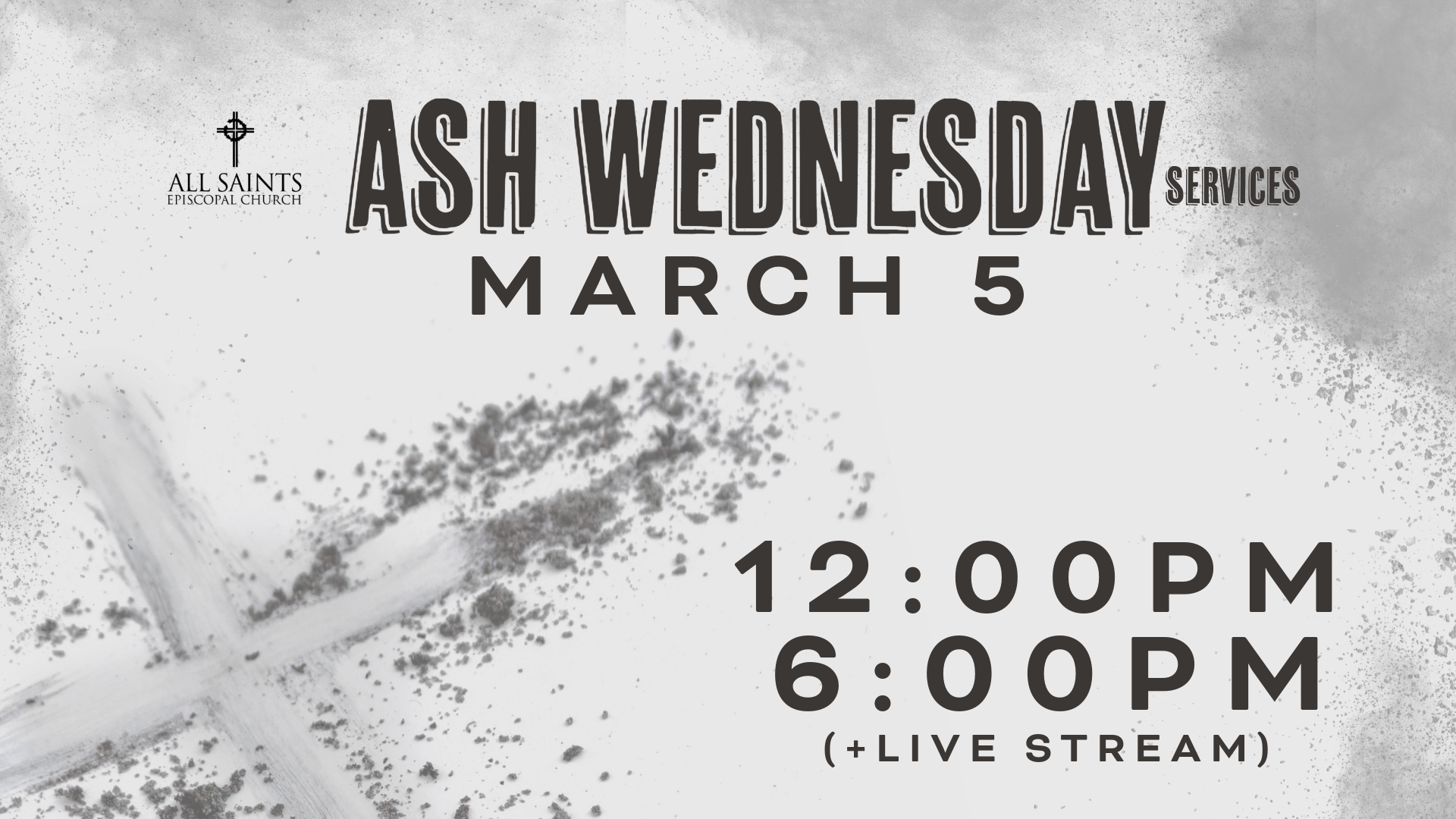
January 6, 2025
Ash Wednesday is Wednesday, March 5! Services will be at 12:00pm & 6:00pm ( +Live Stream ) . The nursery will be available for infants - 6 years old. Falling six and half weeks before Easter, this will mark the beginning of the forty days of Lent in preparation for Christ’s resurrection on Easter Sunday. The ashes are a sign of penitence and a reminder of mortality, and may be imposed with the sign of the cross. The Ash Wednesday service is one of the Proper Liturgies for Special Days in the BCP (p. 264). Imposition of ashes at the Ash Wednesday service is optional.
Hello World
Hello World
Hello World
Hello World
Serving
We seek and serve Christ in our neighbor, both inside and outside our doors. We believe true freedom is found in humility and service to others.
Reverent
Embracing tradition, beauty, and peace through worship, we experience an awe and wonder greater than ourselves. We believe reverence is a posture held held not only towards God, but towards one another, honoring the Image of God embedded within every human being.
Community
We are a community of seekers grounded in the Anglican tradition of scripture, reason, and tradition. Our sense of shared wonder deepens our connection to one another and with Christ.
Nurturing
We encourage one another to wonder, learn, and grow toward the light of Christ.
© 2025
All Rights Reserved | All Saints Episcopal Church










